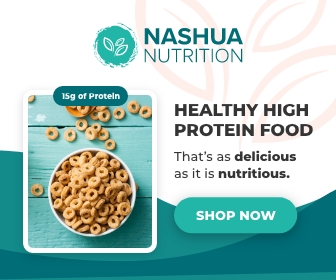Is a tablespoon of olive oil good for you?
Heart health: Olive oil is rich in monounsaturated fatty acids (MUFAs) that can help
to reduce LDL or “bad” cholesterol levels in the blood. This, in turn, can reduce
the risk of heart disease and stroke.How healthy is olive oil for you?
Olive Oil Is Rich in Healthy Monounsaturated Fats
But the predominant fatty acid in olive oil is a monounsaturated fat called oleic
acid, making up 73% of the total oil content. Studies suggest that oleic acid
reduces inflammation and may even have beneficial effects on genes linked to cancer
The health benefits of olive oil have been attributed to its antioxidant
and anti-inflammatory properties. In fact, observational studies have
shown a link between lower risks of cardiovascular disease, some cancers,
and even dementia in people who consume higher amounts of olive oil
than those who use little or none.

Niacin (vitamin B3) plays an important role in maintaining the health of
your heart, blood vessels, and metabolism. It may also be used with other
medications to decrease bad cholesterol and fats (such as LDL, triglycerides)
and increase good cholesterol (HDL) in your blood.
weight loss meal planning supplements fitness lifestyle healthy
living healthy eating health Lean resolution
!!
IMPROVING LOW TESTOSTERONE NATURALLY.
MAINTAIN IDEAL BODY WEIGHT.
AVOID DEVELOPING DIABETES.
EXERCISE
SLEEP WELL
AVOID TOBACCO PRODUCTS
AVOID EXCESSIVE ALCOHOL
AVOID OPIOID PAIN MEDICATIONS.
Is a spoonful of olive oil a day good for you?
A 2022 analysis of previous studies, covering hundreds of thousands of people,
found that each additional 5 grams you eat daily – that’s a little over a teaspoon
– can lower your risk of dying overall by 4%. Extra-virgin olive oil is rich with
polyphenols, a powerful group of
antioxidants that fight inflammation.
February is American Heart Month
February is American Heart Month, a time to raise awareness about heart health and
cardiovascular disease (CVD) prevention. In this article, we’re highlighting government
benefits and programs aimed at supporting individuals in their journey towards a
heart-healthy lifestyle.
Medicare
Medicare, the federal health insurance program for people aged 65 and older, covers a
range of services to address heart-related issues. These services include prevention
programs, diagnostic testing, medications, surgery, and more.
Learn More
Medicaid
Medicaid is also a great healthcare resource. The joint federal and state program
offers health coverage to low-income individuals and families, including coverage
of essential heart-related services. Similar to Medicare, these services include
preventive programs, diagnostic tests, and heart condition treatments.
Check Eligibility
Nutrition Assistance Programs
Government programs like the U.S. Department of Agriculture’s MyPlate initiative aim
to improve nutrition and overall health. A well-balanced diet is essential for heart
health, and MyPlate offers practical tips, meal planning resources, and educational
materials to support individuals in making heart-healthy food choices.
Learn More About MyPlate
Physical Activity Initiatives
Various government programs and initiatives encourage physical activity as a key
component of heart health. The Centers for Disease Control and Prevention (CDC)
supports programs that promote exercise and a healthy lifestyle, contributing to the
prevention of heart disease.
Explore CDC Resources
American Heart Month reminds us of the importance of heart health and the steps people
can take to prevent cardiovascular disease. By leveraging these government resources,
we can all make informed decisions and adopt healthier lifestyles. RETURN TO PAGE 1


